This parabooks section documents some of the experiments in PDF, chapbook, and other types of publications that may fall under the rubric of “virtual literature” (the subject of my second book Failure, A Writer's Life). . . . They are literary objects that fail literature to the extent that they can’t submit easily to the current shape of the book, or extend beyond the book into performance, web, sculpture, video, sound, and other incarnations. In many ways, my mediawriting across many different contexts has always explored this virtuality, but these examples are more squarely in this netherworld. While some of my parabooks have been published or otherwise made available to the public, others have been intentionally withheld, privately circulated, or anonymously authored.
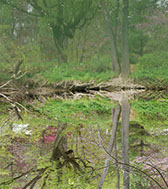
The Pink Book (2018) is a text-image work utilizing collage, foundimages, photography. In many ways, this PDF is an extension of the remix and collage I had been doing in online spaces such as dump.fm.
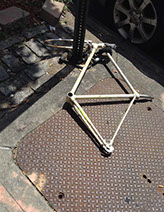
The Shipwreks of Greenpoint (2016)
A mediumistic ethnographic fiction about abandoned bikes in Greenpoint, NYC. An example of a long-standing interest in the ways photography and writing can be tools for creative urbanism and everyday life studies (as can be seen in my “The Idea of South,” “New Jersey as an Impossible Object,” and “The Woonasquatucket Primitive”)

The Radiotelegrapher’s Song (2015)
A sound poem and an accompanying PDF (a partially détourned vintage handbook on radiotelegraphy). Originally published in Gauss PDF. Song writing and singing find their way into many of my projects, as can be seen here and here, and is integral to my poetics.

Marcel Duchamp’s The [Creative] Act (2014)
Duchamp‘s lecture “The Creative Act” is transformed into a conceptual poem. Originally published in Gauss PDF and written about in The Paris Review online blog
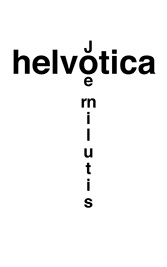
Helvotica (2014)
Concrete visual poetry book based on an optical illusion particular to the Helvetica font. Currently offline.

The Numbers (2013)
As part of the Now Here is Also Nowhere: Part II exhibition
at the Henry art gallery, I was commissioned to create a series of responses to the collaborations on display, including a xerox chapbook, a performance, and a talk.
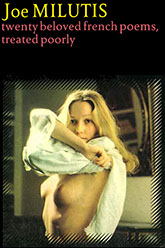
Twenty Beloved French Poems, Treated Poorly (2012)
Chapbook of experimental translations of 19th-century French poetry, with a variety of instantiations in video and performance. Other than the videos and available recordings of readings, currently offline. The following excerpt was published in Inventory, Princeton University’s journal for literary translation. This project continues into the present day, including recent translations of long poems by Tristan Corbière and Stéphane Mallarmé, and a film treatment for Mallarmé’s “Afternoon of a Faun.”
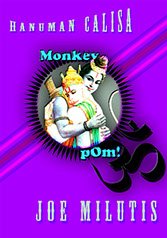
Monkey pOm! (2012)
Experimental translation of the Hanuman Chalisa. Currently offline.
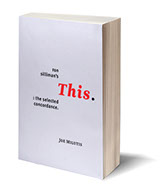
Ron Silliman’s This: The Selected Concordance (2011)
A selection of the word “this” from available digital versions of Ron Silliman’s poetry and an accompanying essay. This POD book was published as part of my multimedia essay “The Quiddities,” an analysis of the literary minutiae of “this.”
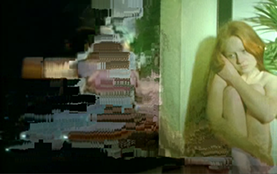
The Torrent
Based on a damaged BitTorrent file of Jean Rollin's erotic horror film The Night of the Hunted (1980), The Torrent translates cross-cultural file error into new narrative configuration. It has appeared in book form (intentionally withheld from online publication), but also as a network of collaboratively crowd-sourced POD books, installations, internet, and performance incarnations.
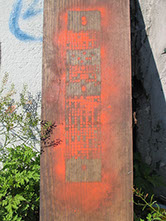
New Jersey as an Impossible Object
(multimedia blog, 2006-2011)
New Jersey as an Impossible Object was an on-going multimedia project, which used William Carlos Williams' Paterson as a psychogeographical map for the city Paterson. The blog documents the resonant space between the poem and its restless referent with audio, video, photos, and commentary. Much of the video is currently offline, as well as some media that made with now-superannuated web 2.0 technology. However, most of the audio including interviews, songs, and abandoned documentary edits is still functioning.